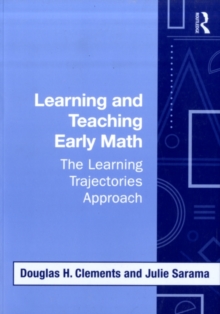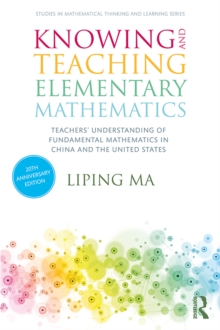
Mathematical Reasoning : Analogies, Metaphors, and Images PDF
Edited by Lyn D. English
Part of the Studies in Mathematical Thinking and Learning Series series
Description
How we reason with mathematical ideas continues to be a fascinating and challenging topic of research--particularly with the rapid and diverse developments in the field of cognitive science that have taken place in recent years. Because it draws on multiple disciplines, including psychology, philosophy, computer science, linguistics, and anthropology, cognitive science provides rich scope for addressing issues that are at the core of mathematical learning. Drawing upon the interdisciplinary nature of cognitive science, this book presents a broadened perspective on mathematics and mathematical reasoning.
It represents a move away from the traditional notion of reasoning as "abstract" and "disembodied", to the contemporary view that it is "embodied" and "imaginative." From this perspective, mathematical reasoning involves reasoning with structures that emerge from our bodily experiences as we interact with the environment; these structures extend beyond finitary propositional representations.
Mathematical reasoning is imaginative in the sense that it utilizes a number of powerful, illuminating devices that structure these concrete experiences and transform them into models for abstract thought.
These "thinking tools"--analogy, metaphor, metonymy, and imagery--play an important role in mathematical reasoning, as the chapters in this book demonstrate, yet their potential for enhancing learning in the domain has received little recognition. This book is an attempt to fill this void. Drawing upon backgrounds in mathematics education, educational psychology, philosophy, linguistics, and cognitive science, the chapter authors provide a rich and comprehensive analysis of mathematical reasoning.
New and exciting perspectives are presented on the nature of mathematics (e.g., "mind-based mathematics"), on the array of powerful cognitive tools for reasoning (e.g., "analogy and metaphor"), and on the different ways these tools can facilitate mathematical reasoning.
Examples are drawn from the reasoning of the preschool child to that of the adult learner.
Information
-
Download - Immediately Available
- Format:PDF
- Pages:392 pages
- Publisher:Taylor & Francis Ltd
- Publication Date:03/04/2013
- Category:
- ISBN:9781136491078
Information
-
Download - Immediately Available
- Format:PDF
- Pages:392 pages
- Publisher:Taylor & Francis Ltd
- Publication Date:03/04/2013
- Category:
- ISBN:9781136491078










